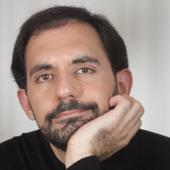Ennio Morricone: a versatile composer with a distinct sound
It is a daunting endeavour to sum up in a few words all the ingenious innovations and innumerable achievements in the multi-decade career of such a musical giant as Ennio Morricone. The maestro left this world on July 6 but his work is sure to move generations of music and film lovers for years to come. If there were three guiding principles of his oeuvre they would be versatility, experimentalism and a distinct musical personality.
Morricone produced more than 500 compositions for films during his career – a diverse spread of music spanning genres and styles but each distinctly Morricone. Although he is most well known for his film composition, his back catalogue includes highly experimental and avant-garde pieces and even Italian pop hits.
Morricone first trained as a trumpet player the prestigious Accademia di Santa Cecilia conservatory in his home town of Rome. He also graduated in 1954 as a choral and orchestral composer. After graduation, plans to focus on “serious” concert music were derailed by the need to make a stable living. This saw him step into the world of popular music where he arranged for the radio and blossoming record industry. One of his biggest hits was the 1966 Se Telefonando (1966), which he wrote for the Italian singer Mina.
Changing film music history
In parallel to his busy film and record industry careers, Morricone remained committed to the creation of “serious” concert music. Over his lifetime he created over 100 concert pieces, including orchestral, choral, and chamber works. He also co-founded the Gruppo di Improvvisazione Nuova Consonanza, an avant-garde musical collective whose aim was to experiment with improvisation in art music.
This commitment to experimentation and adventurousness was applied to his film scores, most notably for Sergio Leone’s “Spaghetti Westerns”. These were a series of low-budget films produced and directed by Italians, which explored the notion of the American West through the lenses of grittiness, cynicism and black humour. Morricone shunned the expected models of film music in Hollywood at the time. These were country ballads, like those by the composer Dimitri Tiomkin in High Noon (Fred Zinneman, 1952) or the Americana full orchestra sound in the style of Aaron Copland heard in The Big Country (1958, music by Jerome Moross) and The Magnificent Seven (1960, music by Elmer Bernstein).
In A Fistful of Dollars (1964) and subsequent films, Morricone opted for an unprecedented fusion of archaic-sounding lines in the melody, reminiscent of medieval modal music. He intermixed this sound with contemporary pop touches (the Fender electric guitar), wordless choirs, unusual instruments (Jew’s harp, ocarinas, mariachi trumpets…) and ambient sounds (whip cracks, whistles, gunshot, coyote’s howls). He also infused scores with his trademark humour. This can be heard in the comedy western Il Mio Nome è Nessuno (My Name is Nobody, Tonino Valerii, 1973) where a toy trumpet toots bits of Wagner’s Ride of the Valkyries.
An auteur
The 1960s were a decade in which film music dismissed the late-romantic full-symphonic sound that had characterised Hollywood and other mainstream film industries. Morricone was pivotal in rejuvenating the art of film scoring with his experimental and against-the-grain approach. Speaking of his composition style in an interview with the New York Times, Morricone said:
I have studied the expressive methods of the entire history of musical composition. […] We are living in a modern world, and in contemporary music, the central fact is contamination, not the contamination of disease but the contamination of musical styles. If you find this in me, that is good.
Regardless of the genre or the experiment at hand – and the limits dictated by the film – his sound was always distinct. It was through this contamination, as he called it, that he was able to break from the limitations imposed from the film and develop his sound.
Morricone’s recognisable personal style was also the product of artistic integrity and an uncompromising no-nonsense attitude that are sadly rare in commercial music. He insisted on writing every aspect of the music, without resorting to arrangers or computer-software.
One of his greatest scores – his personal favourite, reportedly – was for The Mission(1986). He produced a masterpiece in which the three key elements of the story have a musical character. The first is that of the oppressive Roman Catholic Church represented by the piece Conspectus Tuus. The intricate motet (a mainly vocal musical composition) is reminiscent of the Italian Renaissance composer Giovanni Pierluigi da Palestrina. The second is that of the humane people’s church of Father Gabriel, which is brought to life in the spiritual melody of Gabriel’s Oboe. The third is the Guarani tribe who are represented with trilling pan pipes in the Edenic choral piece Vita Nostra.
Morricone interwove all three with a heartfelt dramatic sensitiveness and an impressive command of contrapuntal writing that is all too rare in film music. The score to The Mission is not just great “film music”; it is great music. It demonstrates Morricone’s versatility, experimentalism, and artistic integrity in the highest, most mature and integrated form.
Emilio Audissino, Honorary Fellow in Film Studies, University of Southampton
This article is republished from The Conversation under a Creative Commons license. Read the original article.





















